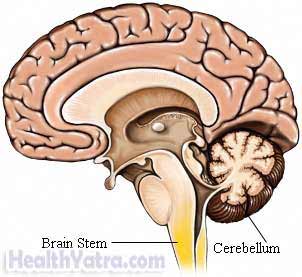परिभाषा
Narcolepsy is a disorder of the nervous system. It results in frequent, involuntary, episodes of sleep during the day. Sleep attacks can occur while you drive, talk, or work.
का कारण बनता है
The cause is unknown. It is thought to have a genetic link. There is increasing evidence that it may be an autoimmune disorder. In this type of disorder the body’s own immune system attacks a part of the brain.
जोखिम कारक
A risk factor is having family members with narcolepsy.
लक्षण
Symptoms usually start during the teenage years. Onset may range from 5-50 years old. Symptoms may worsen with aging. They may improve in women aftermenopause.
लक्षणों में शामिल हैं:
- Excessive daytime sleepiness
- Daytime involuntary sleep attacks
- Unrefreshing sleep
- Sudden loss of muscle tone without loss of consciousness (cataplexy)
- Temporary paralysis while awakening
- Frightening mental images that appear as one falls asleep
- Memory problems
- Symptoms may be triggered by:
- A monotonous environment
- A warm environment
- Eating a large meal
- Strong emotions

निदान
The doctor will ask about your symptoms and medical history. A physical exam will be done. If narcolepsy is suspected, you may be referred to a specialist in sleep disorders.
परीक्षण में शामिल हो सकते हैं:
- Multiple sleep latency test (MSLT)—measures the onset of rapid eye movement sleep, which occurs earlier than normal in narcolepsy
- General sleep lab study—often done the night before an MSLT; helps to rule out other causes of daytime sleepiness by monitoring:
- Brain waves
- Eye movements
- Muscle activity
- Respiration
- Heart beat
- Blood oxygen levels
- Total nighttime sleep
- Amount of nighttime REM sleep
- Time of onset of REM sleep
- Degree of daytime sleepiness
उपचार
उपचार में शामिल हो सकते हैं:
- Stimulant medicines that increase levels of daytime alertness, such as:
- Methylphenidate
- Dextroamphetamine
- Methamphetamine
- Modafinil
- Armodafinil
- Gamma-hydroxybutyrate (GHB)—for excessive daytime sleepiness and cataplexy, such as sodium oxybate
- Antidepressants—to help treat many symptoms of narcolepsy (eg, cataplexy, hallucinations, sleep paralysis)
Other treatment options include:
- Planned short naps throughout the day
- Counseling to cope with issues of self esteem
- Wearing a medical alert bracelet or pendant
रोकथाम
There are no guidelines for preventing narcolepsy. But, you can try to prevent symptoms by:
- Exercising on a regular basis
- Getting adequate sleep at night
